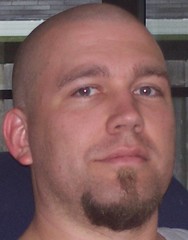Wanna sneak peek of how Dems would stifle talk radio & other free speech?
From George Will:
SEATTLE — As the comprehensive and sustained attack on Americans' freedom of political speech intensifies, this city has become a battleground. Campaign-finance "reformers," who advocate ever-increasing government regulation of the quantity, timing and content of political speech, always argue that they want to regulate "only" money, which, they say, leaves speech unaffected. But here they argue that political speech is money, and hence must be regulated. By demanding that the speech of two talk-radio hosts be monetized and strictly limited, reformers reveal the next stage in their stealthy repeal of the First Amendment.I recall that when the Supreme Court ruled that McCain-Feingold was constitutional because "money doesn't equal speech", the left was more giddy than Barney Frank at a Chippendale's show. However, only in the left's obtuse pretzel-logic minds, money doesn't equal speech...but speech does equal money? Continuing:
When the state's government imposed a 9.5-cents-per-gallon increase in the gas tax, John Carlson and Kirby Wilbur of station KVI began advocating repeal by initiative. Proponents of repeal put up a Web site, hoping to raise 1,000 volunteers and $25,000. In two days they had 6,500 and $87,000. Needing 224,880 signatures to put repeal on the ballot, they got 400,996.Thanks, John McCain. In closing:
Appalled by this outburst of grass-roots democracy, some local governments, which stood to gain many millions from the tax, unleashed a law firm that would gain substantially from handling the bond issues the tax would finance. The firm set out to muzzle Carlson and Wilbur, using the state's campaign regulations.
It got a judge to rule that the broadcasters were not just supporters of the repeal campaign, they were agents of it. Why, they had even used the pronoun "we" when referring to proponents of repeal. (A judge using "we" to refer to one of the parties before his/her court? I haven't heard that happen since the Florida Supreme Court asked Gore's attorney David Boies in 2000: "How much time do WE need?" - Ed.) Their speech constituted political advertising, and their employer was making an "in-kind contribution" to the repeal campaign. The judge said a monetary value must be placed on their speech (he did not say how, he just said to do it that day). The law says reports must be filed and speech limits obeyed or fines imposed.
State law restricts to $5,000 the amount a single giver can contribute in the three weeks before an initiative. If Carlson's and Wilbur's speech were monetized at radio-advertising rates, they would be silenced for all but about 15 minutes in each of the campaign's crucial last three weeks. They continued to talk (the repeal campaign, outspent almost five to one, lost 54.6-45.4) and, aided by the libertarian litigators of the Institute for Justice, have taken the issue to the state Supreme Court.
What has happened in Seattle prefigures what a national Democratic administration might try to do — perhaps also by reviving the "fairness doctrine" (an "equal time" regulation) — to strangle conservative talk radio. And what has happened here — the use of campaign regulations as weapons of partisanship — is spreading.
When the court made that mistake, most of the media applauded, assuming, mistakenly, that they would be forever exempt from regulation. If Washington state's Supreme Court does not quash the idea that the government gets to decide who gets to say how much of what on the air, the U.S. Supreme Court will be asked to reconsider the wisdom of deferring to governments when they limit speech about government.




<< Home